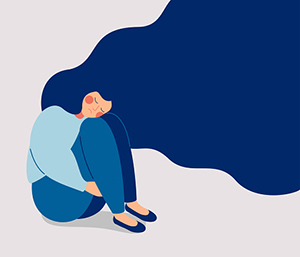Cancer-related fatigue is a prevalent and potentially persistent issue among breast cancer survivors. A study presented by Di Meglio et al at the ESMO Breast Cancer Virtual Meeting 2020 (Abstract 183O) has now shown that existing recommendations and proven strategies for reducing fatigue—which can have physical, emotional, as well as cognitive dimensions—may not be sufficiently adhered to by patients with early breast cancer.
In explaining the background to the analysis, study author Antonio Di Meglio, MD, of Gustave Roussy in Villejuif, France, stated in an ESMO press release. “Cancer-related fatigue is an issue that many patients complain about in the clinic—sometimes for years after the completion of treatment. Although there is a lot that we still don't know about the different mechanisms underpinning fatigue, we now have specific, evidence-based recommendations for treating it: the first is to initiate or maintain adequate levels of physical activity and limit sedentary time as much as possible. Data also supports the use of psychosocial interventions such as cognitive behavioral therapy, which can help address maladaptive thoughts like overdramatizing or feelings of helplessness. Our aim with this study was to assess the real-world uptake of these recommendations.”

Photo credit: Getty
Methodology
The research team drew on data from the CANTO cohort study, which assessed long-term toxicities in patients with early breast cancer from 26 French cancer centers for at least 5 years from the time of diagnosis. According to Dr. Di Meglio, “CANTO is unique in the field of survivorship research, as it enrolled over 10,000 patients nationwide, of which we were able to include more than 7,000 in our analysis. The wealth of clinical, patient-reported, and biological data collected makes it an ideal database to answer a lot of questions about cancer-related fatigue.”
Dr. Di Meglio and his colleagues included in their analysis only women who had completed primary treatment and were free of disease, and examined patients’ reported utilization of recommended strategies to treat fatigue over 12 months after a baseline assessment.
Findings
“These are patients who were free of disease and whom we would expect to return to their precancer state within 6 to 12 months after the end of treatment. What we found, however, was that over a third of patients (36%) reported fatigue that we classify as severe at 3 to 6 months after treatment,” said Dr. Di Meglio. “A majority of study participants (64%) complied with physical activity recommendations in the year that followed, but that still leaves a concerning proportion of women (36%) who were not sufficiently active or completely inactive during this period.”
The results additionally showed that patients who reported severe levels of fatigue at baseline were less likely than those with nonsevere symptoms to adhere to recommendations of physical activity (60% vs 67%) in the year following the assessment. “The message here is that we need to work harder to encourage patients to stay active, and to make them understand that even if it seems counterintuitive, it is exercise, not rest, that will help them to overcome fatigue,” said Dr. Di Meglio.
The analysis further brought to light that overall reported utilization of supportive care was low in this patient population, with only 1 out of 10 women consulting a psychologist, 1 out of 12 seeing an acupuncturist, and 1 out of 14 seeking help from a homeopath. “The striking fact here is that patients seem to be using strategies that we have robust evidence for and can refer them to, like psychotherapy, at roughly the same rates as approaches for which we do not have sufficient efficacy data and therefore cannot recommend, like homeopathy,” observed Dr. Di Meglio. “This suggests that patients may not be sufficiently aware of what the recommendations are, and that we as oncologists need to ensure they are educated about the options at their disposal to reduce fatigue. Better education may also help to diminish the fears and stigma that are still too often associated with psychosocial interventions.”
Patients’ physical activity uptake and utilization of supportive care were additionally evaluated for different dimensions of fatigue, revealing differences in women's behavior depending on whether their fatigue was more physical, cognitive, or emotional in nature. “Most notably, we found that patients with severe physical fatigue were less likely to adhere to physical activity recommendations, at 59% compared to 67% of those with nonsevere physical fatigue, while high levels of emotional fatigue were more strongly linked to utilization of psychological consultations, at 17% compared to 8% of nonsevere patients in this domain,” reported Dr. Di Meglio.
He continued, “We also expected women experiencing severe overall fatigue to rely much more heavily on supportive care measures, but in fact they were only 1.3 times more likely to seek out the help of a psychologist, for example, than patients with nonsevere fatigue. This may be explained in part by the fact that psychosocial interventions in this context usually come with out-of-pocket costs for patients. That is something our findings may contribute to changing in the future—especially considering that untreated cancer-related fatigue can have long-term social and financial consequences for survivors, some of whom we know never return to their previous life.”
Disclosure: For full disclosures of the study authors, visit cslide.ctimeetingtech.com.

